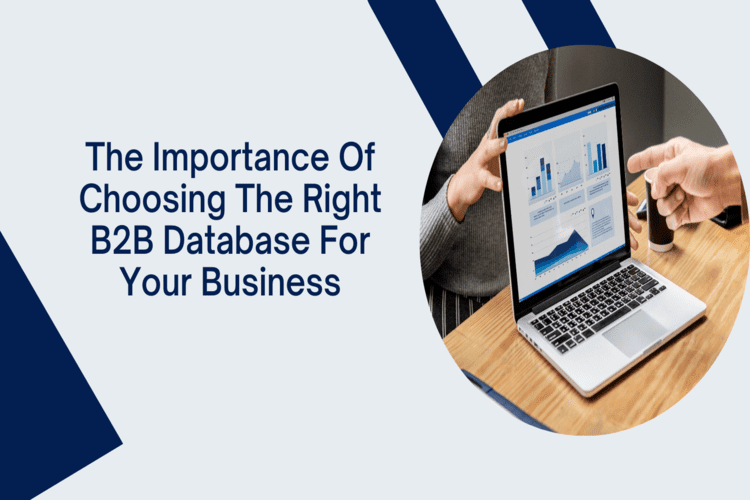
The Importance of Choosing the Right B2B Database for Your Business
Database evolution has been a long and gradual process, starting with simple clerks and ledgers on paper and evolving into more sophisticated systems that could store and manage data. In recent years, there has been a renewed focus on developing cloud-based databases that allow companies to access their data from anywhere in the world.
Today, there are many different types of databases. They were all pretty much the same in the past, with a few minor variations. However, over the last few years, businesses have begun adopting different database structures and features to suit their needs better. This has led to the evolution of B2B databases.
What is a B2B database?
A B2B database is a type of database that is specifically designed for use by firms. B2B databases are often used to store information about companies related to each other, customers, and consumers involved. This database is typically used by companies who sell products or services to other businesses. A B2B database can be used for various purposes, such as sales leads, customer profiles, and supplier information.
Perks of Using a B2B Database:
1. Accessibility
A B2B database is typically more accessible to businesses. This accessibility allows companies to search for information more quickly and easily.
2. Integration
The wide range of integration options available with a B2B database makes it easy to integrate with other applications. This integration capability allows it to collect data from multiple sources and automatically merge it into a centralized database.
3. Time Savings
A database can help businesses track and manage information more efficiently and quickly. For example, a business database can keep track of customer contacts, orders, and shipments.
4. Cost Savings
A business database can help businesses reduce costs associated with paperwork and communication lapses. For example, a business database can consolidate customer, supplier, and employee information into one location. This can save companies on postage, phone calls, and correspondence expenses.
5. Improved Productivity
A well-organized business database can help employees be more productive by providing them with the necessary information quickly and easily.
6. More accurate communication with customers
Having up-to-date customer information in your database can help you better understand and service your customers.
7. Better inventory management
Keeping track of product descriptions, specifications, and stock levels can help you avoid shortages and keep your shelves stocked efficiently.
8. Increased competitiveness
A business database can give you an edge on the competition by improving your ability to research industry trends, benchmark performance against the competition, and track critical statistics such as sales growth or market share.
Considerations when Choosing a B2B Database:
- When choosing a B2B database, it is essential to consider the type of technology that is being used. There are many different types of B2B databases available, so it is crucial to select the one that best suits your needs.
- Some factors to consider when choosing a B2B database include the size of the database, the number of users permitted, and whether or not encrypted data is supported.
- A database must have the features required by the company. For instance, a database that stores customer data must have customer account management features, while a database that stores sales data must have sales tracking features.
- The database’s cost and scale should also be considered. For instance, if a company wants to use a small, boutique database for internal use, then it may not need or want something as large and expensive database.
- The performance and reliability of the database should also be considered; for instance, does it tend to crash frequently or take a long period to load?
In conclusion, choosing a suitable B2B database for your business is vital. Make sure to consider the features that are important for the company, as well as the cost of using the database. Once you have chosen a database, make sure to invest in training and support so that you can maximize its potential.


